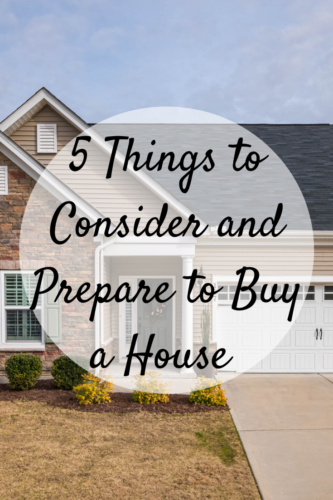
Buying a house is an exciting time, but there are tons of things that you need to consider once you’ve decided that it’s the right time to purchase. Instead of letting the excitement and stress overwhelm you, make sure to consider these five things:
Types of Mortgages
There isn’t just one type of mortgage. When most people think of a home loan, they think of a conventional loan, but there are actually other types of mortgages available for all types of homebuyers. For instance, some lenders will offer manufactured home loans for those looking to buy either a mobile or manufactured home, while other lenders will only offer loans to those buying a traditional property. As such, not only will you have to determine which loan is right for you, but you’ll need to choose a loan and when to buy based on rates.
For example, loan rates for VA loans may differ from the rates for conventional loans. Once you’ve decided that you’re ready to buy and have saved enough money, contact a mortgage lender to learn which loan offerings are available for you. Their loan officers can help you determine which loan will work best for your financial and personal situations.
Duration of Stay
Before you buy a house, consider how long you’re going to live in it. This is one factor that is often overlooked by homebuyers, but it’s important to consider before you purchase a home. The duration of your stay will determine whether or not it’s more financially intelligent to rent a home instead of buying one. While a house can be cheaper than renting in the long term, renting is more affordable for the short term, so if you’re only planning to stay in the home for three years, it might not be worth it to buy.
That being said, there’s no simple answer for determining whether or not it’s more economical to buy instead of rent. Each housing market is different and requires analysis on your part so that you can make the best decision. However, you can predict whether the amount of time you plan to spend living in the house is worth the purchase itself.
Down Payment
The down payment on a home is the highest upfront cost that will come out of your pocket. Because of this, it’s one of the biggest obstacles that home buyers need to overcome. If you want a conventional loan, you’ll need to save money—at least 20% of the price of the home—to put down.
Other loans, such as a VA loan, come with the opportunity to put zero down, while some allow you to put less down. If you do choose to put less than 20% down, then you’ll need to get mortgage insurance, which protects the lender if you ever can’t pay your mortgage. Mortgage insurance means that your monthly mortgage payments will be more because you put less down on the house. However, this can be beneficial for homebuyers who don’t have a significant sum saved for their down payment.
You can use a mortgage calculator to determine how much a home will cost you based on how much you put down.
Mortgage Rates
Mortgage and interest rates will predict how much the total loan will cost you overall. Mortgage rates change every day, so if you want to lock in a rate, you’ll need to do so with a lender as quickly as possible. As soon as you apply for pre-qualification, you can lock in your mortgage rate so that you won’t have to pay more than what you agreed to in the terms of the contract.
Potential Problems
When it comes to buying a house, you’ll need to be ready for any problems that come up. When you’re renting, a landlord will take care of household pests and home repairs. However, when you own a home, you’ll need to take care of everything yourself. Household problems can be expensive, so make sure that your budget has a little wiggle room for any repairs after you move in.
If you’re considering buying a house, take this as a sign to get started! The time is ripe for many homebuyers, so don’t let the opportunity pass you by.





Leave a Reply